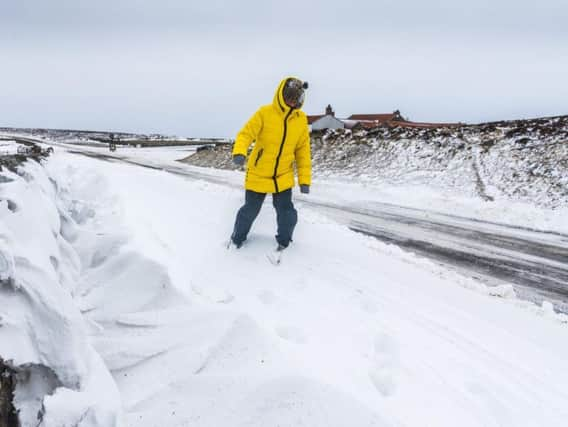Why the Beast from the East and sizzling summer of 2018 led to soaring water main repairs for Yorkshire Water


However, Anthony Rabin, inset, the company’s chairman, said Yorkshire Water’s response to the “exceptional” weather conditions had been outstanding.
The company’s accounts reveal that from May to October, Yorkshire Water was dealing with more than 2,000 water main repairs a month. In the same period the previous year, repairs rarely totalled more than 500 per month.
Advertisement
Hide AdAdvertisement
Hide AdA spokesman said: “The reason for the significant increase is due to the extreme weather conditions, going from the cold winter into an unusually dry summer.”
In a chairman’s statement to accompany the results, Mr Rabin said: “The last 12 months have clearly demonstrated the impact of increasing climate volatility on operational performance.
“Throughout this challenging time, service to customers has been maintained.
“The flexibility of supply provided by our water distribution grid, combined with the skill of our colleagues in increasing production to meet demand, has meant that restrictions on customers’ use of water have not been necessary.
Advertisement
Hide AdAdvertisement
Hide Ad“Exceptional weather has also caused challenges to our leakage performance as the drying soil conditions have caused record levels of network bursts.
“The significant investment already agreed by the board to reduce leakage in the longer term has meant that we have been able to double the number of teams finding and fixing leaks on the network and I am delighted to report that this has meant we have been able to meet our regulatory leakage target for the year.”
Most of the exceptional costs of £34.4m were associated with the extreme weather. Last year, Yorkshire Water services’ operating profit – pre-exceptional items – was £263.9m, down from £281.1m in the year before. Total tax contribution was £131.5m, compared with £119.9m the year before.
The company’s average bills are the second lowest in the country at £387 per year.
Advertisement
Hide AdAdvertisement
Hide AdRevenue increased to £1.06bn from £1.03bn. Movements in revenue and operating costs resulted in a decrease in EBITDA, pre-exceptional items, to £570.6m from £577.1m.
A dividend of £79.5m was paid in the year compared with £88.9m the year before.
Earlier this week, Yorkshire Water announced that Richard Flint is to retire as chief executive with effect from September 12. He will be succeeded by Liz Barber who is currently the company’s chief financial officer.
He has been with the company since 1992 and became chief executive in 2010.
For the financial year ending March 31 2019, Mr Flint earned £1.328m, while Liz Barber earned £862,000 and Nevil Muncaster, the director of Asset Management at Yorkshire Water, earned £428,000.